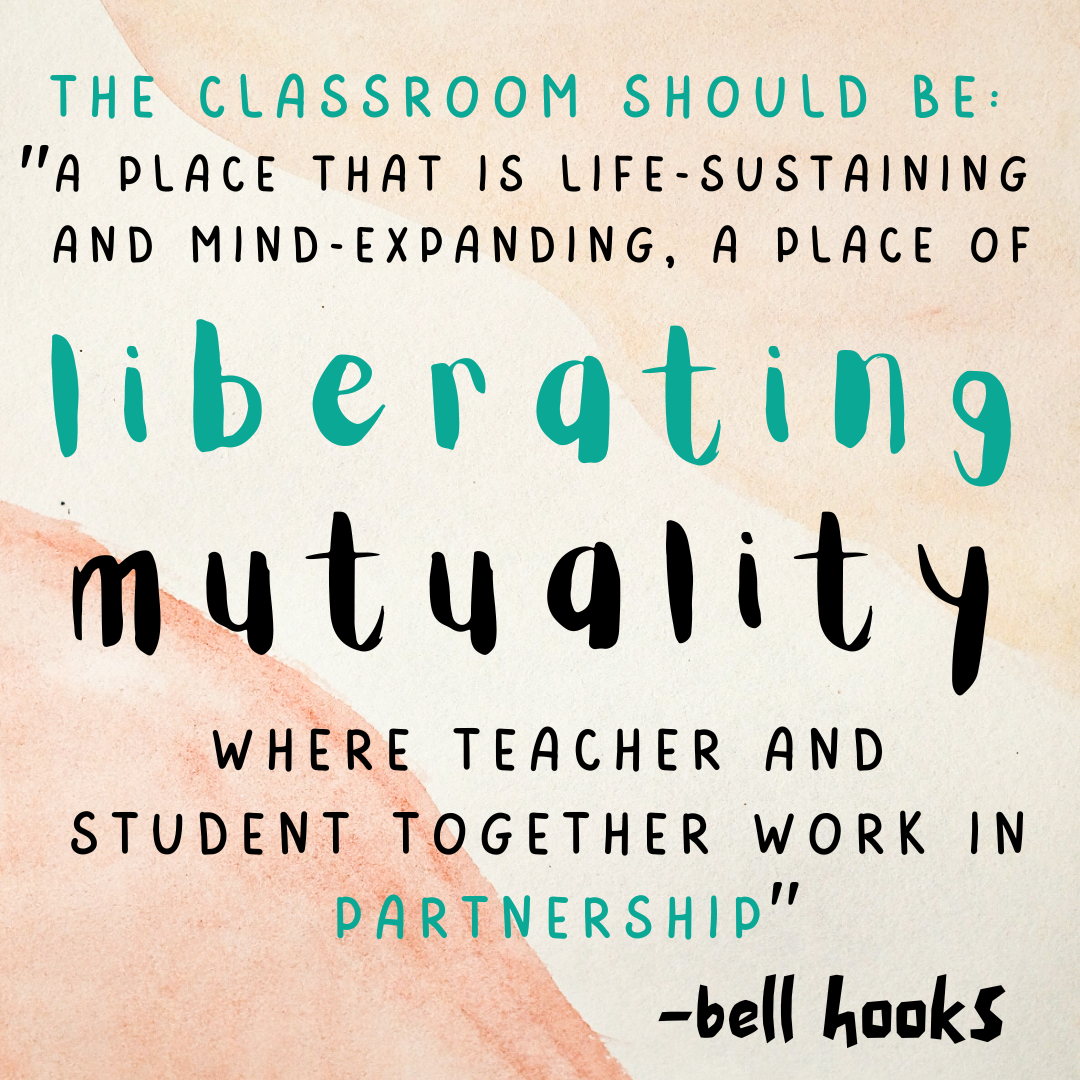Towards Liberation
If we want to dismantle schooling that oppresses and harms, we must work towards schooling that promotes freedom and wellness. No longer can we sustain the status quo in education, but working together, we work to build and sustain education as liberation for all, both students and teachers.
Unfortunately, I all too often observe teachers defaulting to teaching how they were taught, including replicating the pedagogy of disengaged and disconnected college professors in the name of “high expectations.”
In Teaching Community, bell hooks envisions “education as the practice of freedom” and “the classroom a place that is life-sustaining and mind-expanding, a place of liberating mutuality where teacher and student together work in partnership.” Schools should be a place where all students thrive and life flourishes, places of community so rich that “liberating mutuality” blooms, finding freedom in our deep interconnection with one another.
This goes hand-in-hand with the phrase written the other way around, “mutual liberation.” The liberation of students is bound up with the liberation of teachers, the liberation of the oppressed and disenfranchised with those who hold power.
I appreciate Monique Couvson’s (formerly Monique Morris) thoughts on the subject: “Freedom is the fragile flower that must constantly be protected - not from those at the bottom of the social order but from the whims and desires of those at the top. …Civil rights may be at the core of equal justice movements, and they may elevate an equity agenda that protects our children from racial and gender discrimination, but they do not have the capacity to fully redistribute power and eradicate racial inequity. There is only one practice that can do that. Love.”
As we work to help teachers grow in their ability to help students grow and thrive, let’s center liberation as a key principle and goal. Good grades, good test scores, and good attendance can be indicators of a student’s success in school, but they are not indicators of a student’s experience of education as liberation. To pursue liberation in education, students have to be known and welcomed as their true selves, listened to and engaged consistently, and oppressive systems have to be rooted out.
I write a newsletter called "Towards Liberation" (subscribe below!) inspired by work with my colleague Rashaida Melvin about Liberatory Coaching. But why the "towards" part? So often, I felt so far from freedom as I know students and teachers often experience as well. We are bound by systems that oppress within capitalism, racism or gender norms, our own anxiety or fear of what others think of us, feeling powerless in different aspects of our lives, and so on. Yet, we point ourselves in the direction of liberation, and we move there together. It’s directional.
Let’s continue on the path towards liberation together.
